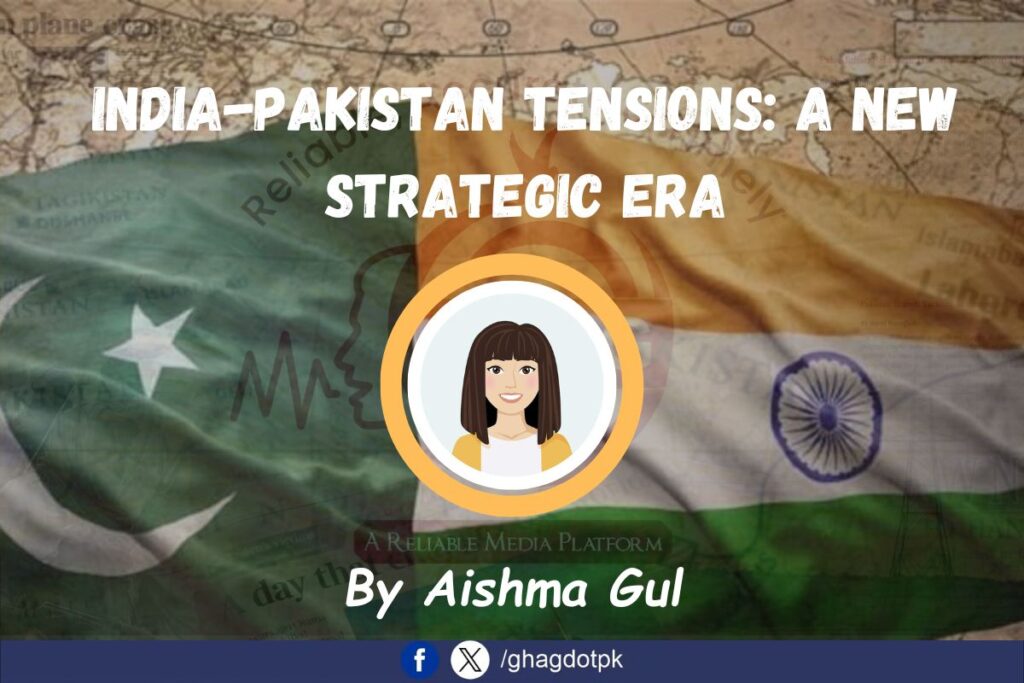By Aishma Gul
“The world is witness to India’s hate-speech conclaves that provoke genocide against Muslims and its gross human rights violations in Kashmir.” – ISPR Statement, January 15, 2025
The relationship between India and Pakistan has always been the focal point of South Asian geopolitics — complex, stressful, accusatory. But recent developments in the region have thrust these delicate ties back into the spotlight, with strong words from military officials and the shifting of regional alliances. Here is an overview of recent developments and what they mean for both countries.
ISPR’s Response to Allegations from India
On January 15, 2025, Pakistan’s Inter-Services Public Relations (ISPR) condemned remarks made by Indian Army Chief General Upendra Dwivedi describing Pakistan as the “epicentre of terrorism.” General Dwivedi claimed that 60 per cent of militants killed in Indian-occupied Jammu and Kashmir (IIOJK) were Pakistanis. ISPR denied the accusations calling it factually incorrect and politically motivated.
These statements are also an attempt to divert focus from India’s internal challenges, including its treatment of minorities and its heavy-handed approach in IIOJK, ISPR highlighted.
– Human Rights Violations in IIOJK: Criticism of the Indian military’s alleged acts including mass detentions, excessive use of force and denial of freedom to the people of Kashmir continues to draw international criticism with organizations such as Amnesty International calling to account Indian military conducts in IIOJK
– International Concerns: As reported by The Washington Post, India’s alleged role in addressing transnational repression, especially against Sikh activists operating out of Canada and the United States, has raised alarms globally.
– Kulbhushan Jadhav Case: Pakistan reminded the world of the Indian Naval officer Kulbhushan Jadhav, who was arrested in 2016 for planning terror acts in Pakistan.
ISPR emphasized that Pakistan’s commitment to combating terrorism remains steadfast, urging India to focus on resolving internal conflicts rather than externalizing blame.
India’s Expanding Influence in Afghanistan
India’s engagement with the Taliban has signalled a shift in South Asian geopolitics. Talks were held in January 2025 between India’s Foreign Secretary Vikram Misri and Afghan Acting Foreign Minister Amir Khan Muttaqi. This was the highest-level engagement since the Taliban’s return to power in 2021. Key developments include:
– Economic Cooperation: The Taliban recognized India’s economic opportunity and showed interest in increasing bilateral relations.
– Strategic Rebalancing: India’s diplomatic recalibration is seen as a response to Pakistan’s diminished influence in Afghanistan, compounded by strained trade relations and military interventions against Pakistan Taliban hideouts in Afghan territory.
While some analysts perceive this rapprochement as a threat to Pakistan’s strategic depth, others argue this indicates India’s attempts to counterbalance China-Pakistan alliances in the region.
Emerging Defense Ties Raise Concerns for India
India has grown increasingly wary of Pakistan’s growing defence partnerships with Turkey and China, viewing them as significant challenges to its strategic interests. Pakistan is making great strides to modernize its defence forces:
– Fifth-Gen Fighter Jets: Pakistan has reached a deal with Turkey to set up a production line for stealth fighter jets. The program is designed to bolster Pakistan’s air force and ease dependence on imports.
– Acquisition from China: Pakistan is also reported as negotiating the acquisition of 40 Shenyang J-35 stealth jets to replace ageing F-16s and Mirage aircraft.
These developments highlight Pakistan’s attention to bolstering its defence preparedness with a shared industrial base with major partners. Continued Sino-Pakistan military collaboration, coupled with Turkey’s involvement has provoked India’s apprehensions about its own maritime and aerial security.
China-Pakistan Naval Cooperation and Its Strategic Impact
India’s fears have been compounded by the proposed AMAN-25 naval exercises between the Pakistan Navy and China’s People’s Liberation Army Navy. Planned for February 2025, this exercise reflects the growing Sino-Pak defence partnership, particularly in the Indian Ocean region. Because of the latter’s strategic implications, India is concerned about this collaboration.
Global Focus on Allegations of India’s Covert Operation
A recent investigative report by The Washington Post has shed light on India’s covert assassination campaign targeting individuals in Pakistan. Key revelations include:
– Six Documented Killings: India’s Research and Analysis Wing (RAW) has been implicated in orchestrating targeted killings in Pakistan since 2021.
– Transnational Expansion: These tactics were also reportedly the same as those used against Sikh activists in Canada and the U.S., triggering international condemnation and questions on the ethics of India’s foreign policy.
These revelations add to the difficulty of India’s image as a democratic state committed to international norms. Pakistan continues to play its role as an advocate of peace in the region despite the Indian attempts at portraying it as a sponsor of terror, a reality that stands in contrast to the ground situation.
The tensions between India and Pakistan highlight the fragility of their relationship, which has been marked by accusations, defence rivalries and changing regional realities. As Pakistan persists in refuting Indian allegations — including by presenting its evidence and garnering international support — India views Pakistan’s growing defence partnerships as considerable threats to its security.
Moving forward, diplomatic engagement and adherence to international norms remain essential to de-escalate tensions and promote regional stability. The two nations should prioritize dialogue instead of confrontation to prevent exacerbating the state of conflict already at hand.






